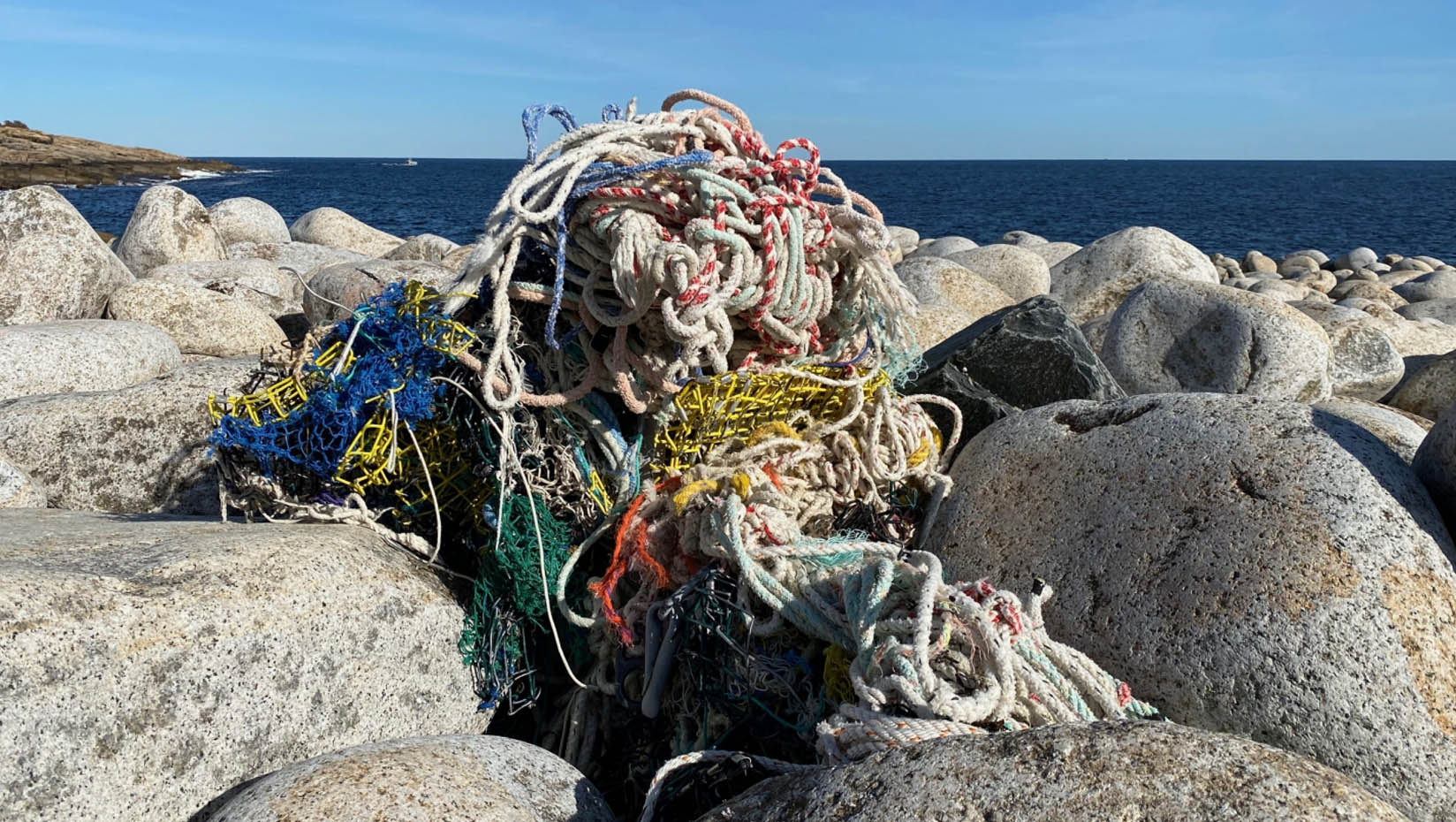
UMaine receives $3.5M from NOAA Sea Grant to address marine debris
Maine Sea Grant College Program, University of Maine researchers and partners throughout the state will receive funding for three projects that address the prevention and removal of marine debris in the Gulf of Maine. Using Sea Grant’s partnered approach to bring science together with communities for solutions that work, the projects will support transformational research and the creation of local coalitions.
“Marine debris negatively impacts our coastal communities, marine wildlife, and iconic ocean vistas — things we consider special about our state. It will take ingenuity, creativity and collaboration to find impactful solutions, and we are excited to have all three of these projects funded,” said Maine Sea Grant Director, Gayle Zydlewski. “Whether it’s preventing debris from going into the ocean or getting it out, we need to tackle this issue from multiple directions and perspectives. We are fortunate to work with a variety of partners and people, from engineers, social scientists and graduate students at UMaine to high school students, artists and recreational boaters in coastal communities so that we can, together, make a difference in Maine. ”
Projects were competitively selected through two opportunities supported by the Bipartisan Infrastructure Law and leveraging funds from the Inflation Reduction Act. The Marine Debris Challenge Competition selected projects that push the boundaries of existing marine debris prevention and removal technologies and approaches, change the current landscape of marine debris mitigation, and tie research to tangible outputs. The Marine Debris Community Action Coalitions opportunity selected projects that engage communities, groups and localities, especially those that have been traditionally underserved, to transfer research into action and inform collaborative on-the-ground marine debris removal and prevention efforts. Between the two opportunities, 29 projects were recommended for approximately $27 million in total funding.
“It’s estimated that there are about 50–75 trillion pieces of plastic and microplastics in the ocean. This widespread pollution is devastating marine environments. We need to get back to basics and realize that the convenience of plastics, particularly single-use plastics, is damaging our environment, our ecosystem, and our oceans,” said Rep. Chellie Pingree. “Thanks to historic funding in the Bipartisan Infrastructure Law and Inflation Reduction Act, science- and education-focused projects like the ones the University of Maine and partners will undertake to prevent pollution on the local level and clean-up debris in the Gulf of Maine.”
For more information about the Maine-based projects, see the following project descriptions:
Reducing Marine Debris at the Source: Material Replacement and Source Reduction for Single-Use Food Packaging
The University of Maine, Maine Sea Grant, and project partners will be awarded $2,997,876 to lower the barriers for companies to enter the sustainable packaging market and understand slow resource loops that help reduce the inflow of plastics to the ocean. This project aims to reduce the burden of marine debris on human communities and coastal ecosystems in Maine and throughout the Gulf of Maine where the impacts of marine debris are disproportionately borne by small, rural coastal and island communities with limited capacity to support increasingly costly solid waste management systems and conservation planning initiatives.
“I hope this project will generate new packaging materials that come from Maine’s forests and oceans and are sustainable, can be recycled, and break down in the environment. The project will explore reusable container models that minimize use of materials and energy. Our work should break down the technical and social barriers to using these new packaging materials and present opportunities for companies to supply or use new packaging systems.” – Project Lead, Douglas Bousfield, University of Maine
Reducing Derelict Fishing Gear in the Gulf of Maine: Educating and Empowering Boaters to be a Part of the Solution
Maine Sea Grant, The Maine Marine Trades Association, and project partners will be awarded $156,150 to form a coalition that will co-develop the first organized outreach campaign to Maine’s recreational boaters and commercial fishing vessels on preventing derelict fishing gear accumulation and other marine debris, which result in losses to the local lobster industry as well as economic and environmental impacts to vulnerable communities. Resulting communications products will be shared with local, regional and national networks.
“We’re hoping to address the issue of marine debris before it makes it to the ocean, with education and awareness. Our campaign will engage boaters in Maine about the shared responsibilities of marine debris prevention and empower them to be part of a solution that benefits commercial fishermen, fishing communities, coastal wildlife and ecosystems in the Gulf of Maine.”- Project Lead, Keri Kaczor, Maine Sea Grant
A Community Education and Research Development Initiative to Develop new Materials and Uses From Ghost Traps
Maine Sea Grant, Haystack Mountain School of Crafts, and project partners will be awarded $299,707 to facilitate the recovery, recycling and refabrication of marine debris material in the Gulf of Maine, such as ghost lobster traps and derelict aquaculture farming gear, into new products with creative, practical and industry applications. The community created will connect Maine high school students and professionals with information exchange, professional development and networking opportunities to collaborate on new applications and markets for marine debris.
“Coalition building is a powerful tool that brings more brains together to generate new ideas and to solve problems. In particular, we’re excited to network with high school students involved in fabrication and 3D printing classes. Maine’s high school students are incredibly bright and creative, and they have a lot to offer in this space. We’re also excited to work with Buzz Scott and build capacity for his Traps to Treasures program. The more people we have working together, the better it will be for Maine’s coastal communities and marine-based industries.” – Project Lead, Dana Morse, Maine Sea Grant
The National Sea Grant College Program’s full release, including links to projects funded across the country, is here.
Contact: Hannah Robbins, hannah.robbins@maine.edu
